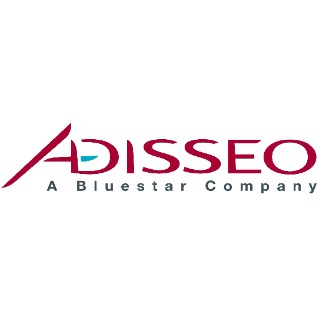Boosting Key Performance Indicators in Swine Production
C12 Glycerides and their contribution to PRRSv control
C12 glycerides are known for their immune-boosting and immune-modulatory effects. Recent in vitro studies confirmed their antiviral potential against PRRSv. Indeed, PRRSv targets porcine alveolar macrophages as its primary site of infection. When these cells were exposed, ex vivo, to PRRSv with or without C12 glyceride supplementation, viral replication was significantly reduced. This ex vivo direct antiviral effect is consistent with earlier scientific findings showing that C12 glycerides can disrupt and lyse enveloped viral particles.
In the same study, C12 glycerides also showed an indirect antiviral effect. Levels of key pro-inflammatory cytokines (messenger molecules) such as TNF-α and IL-8 increased substantially compared to untreated controls despite the immunosuppressive capacities of the virus. And that is good news, because normally PRRSv suppresses the production of these cytokines. They are vital for orchestrating the immune defense, suggesting that C12 glycerides may help counteract PRRSv-induced immuno-suppression by supporting immune activation and subsequently enhancing viral clearance.
The strongest antiviral effect occurred when macrophages were pre-treated with C12 glycerides, leading to a viral load reduction of around 3 log, underscoring their potential as a preventive approach. While these findings are based on laboratory assays, they support the idea that under field conditions, C12 glycerides primarily aid the immune system’s ability to fight PRRSv.
From Lab to Farm: Boosting Key Performance Indicators in Swine Production
1. Enhanced productivity
What does this mean at farm level? Practical trials by Adisseo show promising effects of integrating FRA® C12 Dry into herd health programs. On a Belgian farm during a severe PRRSv outbreak, supplementing sows with FRA® C12 Dry at 3 kg/ton of feed - starting one day before farrowing - led to a notable reduction in pre-weaning mortality, dropping from 14.1 percent in the control group to 10.0 percent in the treatment group. This resulted in a relatively higher number of successfully weaned piglets.
2. Fewer secondary infections with C12 glycerides
In addition, weaned piglets with FRA® C12 Dry in their diets required fewer medical injections against locomotor problems, likely caused by Streptococcus suis. Treatments decreased from 3.2 to 1.9 per 100 piglets. This reduction suggests that FRA® C12 Dry reduces susceptibility to secondary bacterial infections following PRRSv, which could be linked to improved overall disease resilience and enhanced performance.
Recent lab tests confirmed this idea. Adisseo demonstrated that the digestive fluids from PRRSv infected piglets that received FRA® C12 Dry in their diets, showed a much stronger antibacterial effect against Streptococcus suis – a possible secondary infection - as compared to the challenged untreated control group, see figure 1.

3. Reduced PRRSv shedding
Importantly, FRA® C12 Dry also demonstrated a clear effect in reducing viral shedding at the PRRSv positive farm in Belgium. At 7 days post-weaning, only 10 percent of pens in the treatment group tested positive for PRRSv, compared to 20 percent in the control. By day 37, the difference was clearly pronounced: 20 percent PRRSv-positive pens in the treatment group versus 70 percent in the control group. This significant reduction highlights FRA® C12 Dry’s potential to limit the spread of the virus to naïve piglets and lower the overall viral pressure on the farm.
This lower viral shedding was also seen in a controlled challenge trial at a research facility. Piglets, weaned on day 24, were either receiving FRA® C12 in their diet or not. On day 28, the animals were intranasally inoculated with PRRSv to induce experimental infection. As expected, their body temperature and antibodies against PRRSv reacted to the infection. Two weeks later, piglets supplemented with FRA® C12 in their diets showed a 14 percent lower nasal shedding compared to the control group. The observed decreased viral circulation was probably due to a more effective immune reaction with C12 glycerides.
4. Improved immune response
PRRSv infection is known to suppress pro-inflammatory cytokine production, thereby limiting the activation of the innate immune response. The in vivo challenge trial confirmed the in vitro findings regarding the indirect anti-viral effect of C12 glycerides. Key messenger molecules (such as the pro-inflammatory cytokines TNF-α and IFN-γ) were more strongly increased in blood and lung samples of piglets which received C12 glycerides, see figure 2.

C12 glycerides: promising support beyond PRRSv
While C12 glycerides cannot replace vaccines or biosecurity, they offer a powerful nutritional tool to strengthen pigs’ antiviral resilience. Their proven effects – from reducing PRRSv shedding to enhancing immune responses – make them a valuable addition to modern herd health strategies. Field results are promising, showing lower piglet mortality and fewer secondary infections in case of PRRS. With further trials underway, FRA® C12 Dry may be useful in the fight against emerging viral threats in pig production.
Content publihed by SWINE GLOBAL TECHNICAL & SCIENTIFIC SUPPORT TEAM - Olga Lemâle, Amine Mellouk and Jessika Consuegra -.
ADISSEO's website : Feeding for resilience: Nutritional strategies against viral threats in pigs
Contacto:
Contacta con nosotros a través del siguiente formulario.

